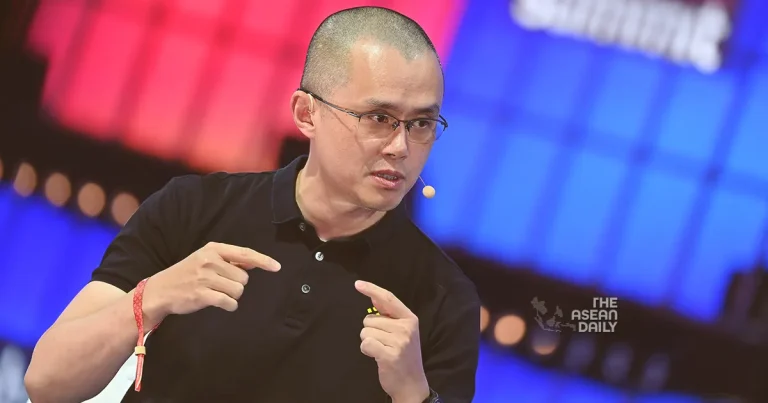22-11-2023 (WASHINGTON) Binance CEO Zhao Changpeng pleaded guilty on Tuesday (Nov 21) to money laundering violations in the United States, resulting in a settlement of US$4.3 billion for the world’s largest cryptocurrency exchange.
Attorney General Merrick Garland stated, “Binance became the world’s largest cryptocurrency exchange in part because of the crimes it committed – now it is paying one of the largest corporate penalties in US history.”
The guilty plea by Binance is part of a coordinated effort involving the US Department of Justice, the Treasury Department’s Financial Crimes Enforcement Network, and the Office of Foreign Assets Control (OFAC).
According to the Department of Justice, Zhao admitted to failing to maintain an effective anti-money laundering program and has subsequently resigned as CEO. He personally entered his guilty plea in the United States, as confirmed by Garland.
Court documents revealed that Zhao agreed to pay a fine of US$50 million as part of the plea deal.
Binance’s settlement with the Treasury Department includes a civil money penalty of US$3.4 billion and a penalty of US$968 million involving OFAC. These penalties represent the largest settlements ever reached by the agencies.
Treasury Secretary Janet Yellen stated, “Binance turned a blind eye to its legal obligations in the pursuit of profit. Its willful failures allowed money to flow to terrorists, cybercriminals, and child abusers through its platform.” She further highlighted that Binance deliberately undermined its own sanctions monitoring controls, enabling over 1.5 million virtual currency trades that violated US sanctions and failed to report suspicious transactions.
Yellen described the penalties imposed on Binance, along with the five-year monitorship, as a significant milestone for the virtual currency industry.
Among Binance’s violations were its failure to prevent and report transactions with groups such as the Islamic State of Iraq and Syria (ISIS) and facilitating trades between US users and individuals in sanctioned jurisdictions like Iran and North Korea, according to the Treasury.
Moving forward, Binance will be required to file suspicious activity reports as mandated by law and review past transactions to report any suspicious activity to the authorities, stated Garland. He emphasized that this step will aid criminal investigations into malicious cyber activity, terrorism fundraising, and the use of cryptocurrency exchanges to support groups like Hamas.
Established in 2017, Binance quickly emerged as a dominant player in the crypto-trading market, elevating Zhao to billionaire status.
However, Binance has faced significant challenges since the collapse of crypto markets and increased scrutiny from regulators regarding the legality of its operations.
Zhao, often seen as the rival of FTX founder Sam Bankman-Fried, is expected to face sentencing at a later date.
As part of the settlement, Zhao is prohibited from participating in Binance’s business operations for the time being.
In a statement, Binance acknowledged that it had made misguided decisions during its rapid growth in an industry that was still in its early stages of regulation. The company took responsibility for its past actions and noted that it initially lacked adequate compliance controls. Binance has been working on restructuring, and Richard Teng, the former global head of regional markets, will take over as CEO.
In a separate social media announcement, Zhao admitted to making mistakes and accepting responsibility.
It’s important to note that the recent settlement does not address Binance’s issues with the Securities and Exchange Commission (SEC), which filed multiple charges against the company in June. The SEC accused Binance of allowing US residents to trade on its platform without proper registration as a securities exchange and misusing customer funds.
Although Binance was founded in China, Zhao relocated its operations to other international locations following Beijing’s crackdown on the cryptocurrency sector.
The volatile nature of the industry, coupled with various scandals including the collapse of the FTX exchange and criminal charges against its executives, led to a loss of public confidence and resulted in investors withdrawing their funds.




